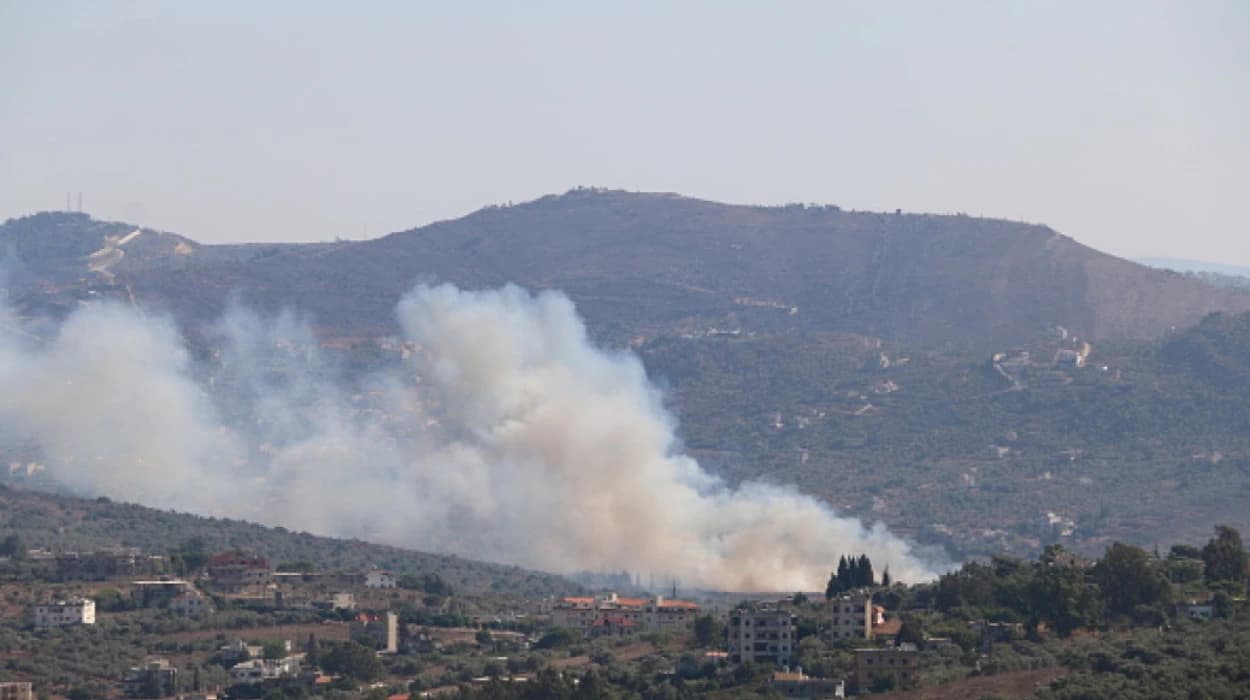Israeli forces launched airstrikes in southern Lebanon,
killing two individuals identified as members of Hezbollah, escalating regional
tensions. The strikes follow ongoing hostilities and mark a significant episode
in the complex Israel-Lebanon conflict.
Israeli Strikes on Southern Lebanon
On a recent date, Israeli military aircraft conducted
precise airstrikes in the southern region of Lebanon, targeting positions
associated with Hezbollah, a Shiite militant group and political party based in
Lebanon. The strikes resulted in the deaths of two individuals whom sources
identified as Hezbollah members. This military action reflects ongoing security
and political tensions between Israel and Hezbollah, underpinning the fragile
stability of the region.
Who Were the Victims of These Strikes?
According to reports detailing the incident, the two
casualties were confirmed as members of Hezbollah. While their names have not
been publicly disclosed pending formal announcements, sources close to the
group confirmed their affiliation. Hezbollah often refrains from immediate
public release of members’ identities after such incidents. The loss is
expected to resonate within Hezbollah’s ranks and could provoke further
retaliatory measures.
Why Did Israel Conduct These Strikes?
Israel’s government and military maintain that such actions
are defensive and preventive. They assert that the strikes targeted individuals
involved in launching attacks or preparing hostile activities against Israeli
territory. The Israeli Defence Forces (IDF) have often justified similar
operations as necessary responses to threats from Hezbollah's extensive arsenal
and its positioning near the border.
Israeli officials viewed this strike as part of a broader
strategy to maintain regional security and deterrence, especially against
threats emanating from Iranian-backed Hezbollah. This perspective was outlined
in statements made by Israeli military spokespeople to various media outlets.
Hezbollah Response
Following the airstrikes, Hezbollah condemned the Israeli
military action, labelling it as an act of aggression undermining Lebanese
sovereignty. The group's leadership has historically vowed to retaliate against
Israeli attacks, raising concerns of escalating conflict. Local Lebanese news
sources cite statements from Hezbollah operatives warning of potential
reprisals, thus increasing anxiety over a possible new round of cross-border
hostilities.
Broader Context of Israeli-Lebanese Tensions
This incident fits into the longstanding and often volatile
conflict between Israel and Hezbollah, which has roots in the Lebanese civil
war and subsequent Israeli occupation of southern Lebanon in the 1980s and
1990s. After Israel's withdrawal in 2000, Hezbollah emerged as a significant
political and military power in Lebanon. Periodic military confrontations have
occurred, including the 2006 Lebanon War, caused by similar clashes along the
border.
In the years since, sporadic exchanges of fire and targeted
strikes, like the recent one, have perpetuated a cycle of violence. The recent
strikes come after a period of relative quiet but indicate that the risk of
open conflict remains high.
Regional Powers Reacting
The international community watches these developments
closely, given their implications for regional peace and stability. Lebanon’s
government has called for restraint from all parties, emphasising the need to
avoid escalation. Meanwhile, Israel's close allies reiterate support for its
right to self-defence.
Analysts from various news agencies speculate the strikes
are part of broader geopolitical dynamics, including Iran's influence in
Lebanon and Syria, and the role of external powers in Middle Eastern affairs.
What Is the Impact on Civilians in Southern Lebanon?
Beyond the immediate deaths, residents of southern Lebanon
live under the constant threat of military engagement. Past confrontations have
resulted in significant civilian casualties and property damage, displacing
communities and damaging infrastructure. The recent strikes remind locals and
observers of their precarious position in a disputed border zone.
What Are the Prospects for Future Conflict or Peace?
The deaths of the two Hezbollah members in Israeli strikes
may harden attitudes on both sides. While diplomatic efforts continue
intermittently to maintain ceasefires, the underlying hostility fueled by
ideological, territorial, and political disputes poses challenges to lasting
peace.
Experts suggest that unless substantive progress is made
addressing the broader regional issues — including Hezbollah’s armament and
Israeli security concerns — such incidents may recur, risking escalation into
wider conflict.
What Does This Mean for Middle East Stability?
The Israeli strikes killing two Hezbollah members underscore
the fragile and often violent nature of Israel-Lebanon relations. This episode
highlights continuing security dilemmas and the challenge of balancing military
actions with diplomatic engagements in a volatile region. Observers and
governments worldwide await further developments, hoping that escalation can be
averted while recognising the deep-seated issues that must be addressed for
lasting peace.
